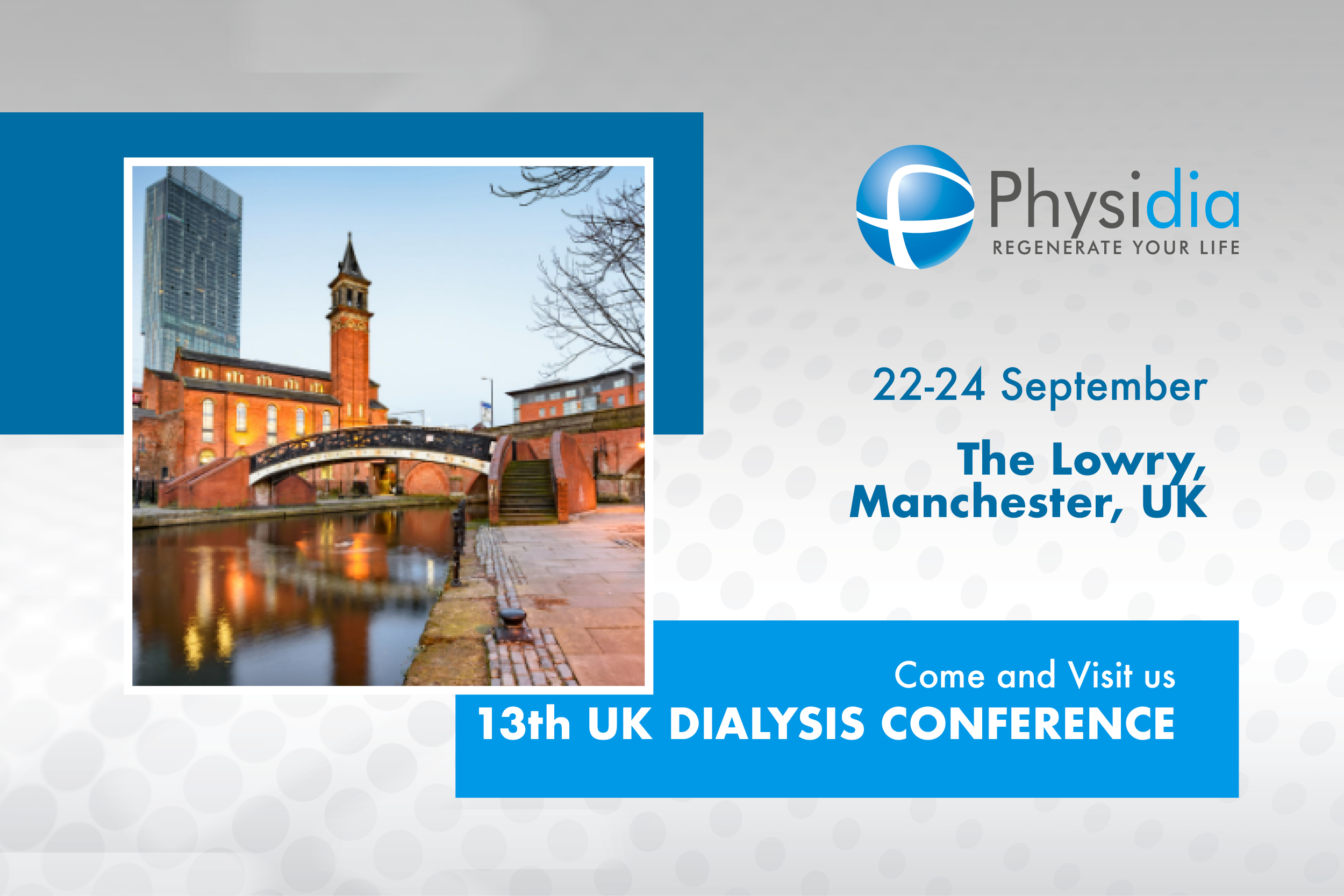SYMPOSIUM: “Physidia’s S3 system, a solution for frequent hemodialyis at home”
On September 23rd, UK Dialysis Conference, Manchester
Physidia is presenting its home hemodialysis therapy to the 13th UK Dialysis Conference, in Manchester. Come to visit our booth and meet our team for learning more about the benefits of frequent home hemodialysis.
We will pleased to invite you to Physidia’s symposium during the conference, on the 23th of September at 12H50
“Physidia’s S3 system, a solution for frequent hemodialyis at home”
Presenters:
Steve Haupt, VP Sales and Marketing • Physidia
Prof. Bernard Canaud, Montpellier University • France
About Physidia
Created in Angers (France) in 2011, Physidia developed and commercializes S³, the first system designed specifically for patients who need daily hemodialysis whilst ensuring their safety and comfort. This innovation is based on several technological breaking points, offering a robust, portable and connected device, whilst ensuring a treatment performed in total autonomy. The short treatment, which lasts in average 2 hours on a daily basis, can be performed at home in full autonomy without compromising the quality of the renal dialysis nor its safety. The system fully favors the patients’ social and professional reintegration, an approach which is impossible to consider for patients who must go to dialysis centers.
The company registered three patents for its hemodialysis system S³. The device and a part of the consumables are produced in France. Physidia is operating directly in France and The United Kingdom and through distributor partners in the rest of Europe. Since its origin, the principal ethos of the company has been innovation with exceptional service by providing comfort, freedom and security to every patient. https://www.physidia.com/
Renal failure and hemodialysis
End-stage renal disease (ESRD) is a severe, chronic disease impacting thousands of people in France. The conventional hemodialysis treatment (artificial kidney) implies three weekly 4-hour sessions at a healthcare facility, to which should be added waiting, recovery and transportation times.
Today representing 43,000 patients, the number of people who are given dialysis increases by 3% every year and costs around € 4bn a year to local governments. Physidia’s solution allows them to make significant economies, by reducing visits and/or transportation to healthcare centers for example.

